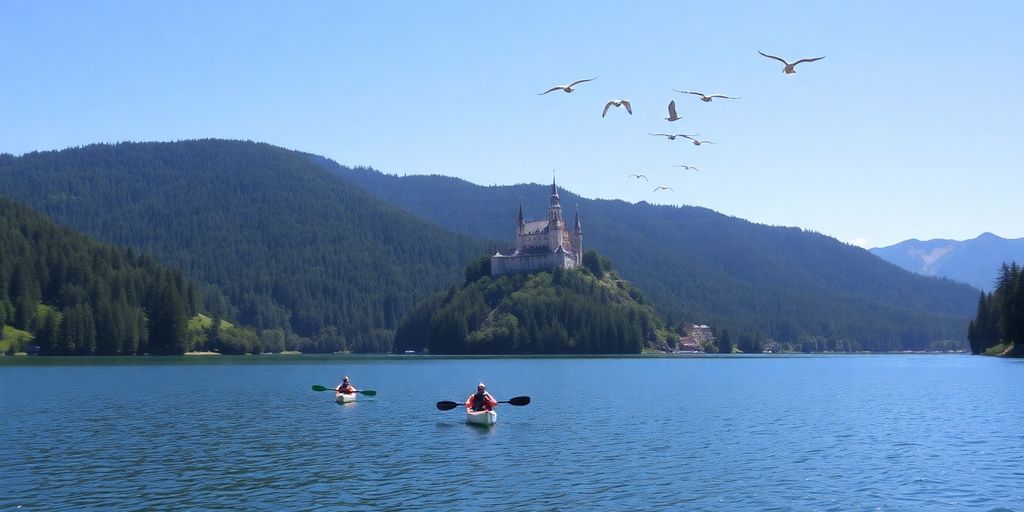Romania is making significant strides in both tourism development and environmental protection. New initiatives include a major thermal spa complex in Pecica, the expansion of the Via Transilvanica long-distance trail, and successful efforts to reduce methane emissions from the oil and gas industry. These diverse projects highlight Romania’s commitment to sustainable growth and enhancing its appeal as a destination.
Boosting Tourism Through Wellness and Adventure
Western Romania’s town of Pecica is set to become a major thermal tourism hub with the development of a year-round thermal pool complex and a 3.5-hectare thermal lake. This EU-funded project, expected to be fully operational by 2027, aims to attract Romanian tourists who traditionally travel to Hungary for similar facilities. The complex will feature indoor and outdoor thermal pools, with access to the thermal lake being free. The town also plans to expand its accommodation capacity with a new hotel.
Meanwhile, adventure tourism is thriving with the continued expansion of the Via Transilvanica. This 1,599 km long-distance trail, which traverses ten counties and showcases 12 UNESCO World Heritage Sites, recently unveiled a new kilometer milestone on Șimian Island. The trail, which attracted over 30,000 hikers in 2024, emphasizes cultural heritage and the coexistence of diverse ethnic communities.
- The Pecica thermal lake is projected to be functional by 2026, with the thermal pool complex following in 2027.
- The Via Transilvanica trail spans 1,599 km and includes 12 UNESCO World Heritage Sites.
- A recent survey indicates that 70% of Romanian tourists prefer local destinations for their holidays.
Cycling tourism is also gaining traction, with companies like Butterfield & Robinson offering high-end cycling tours through Romania’s medieval villages, castles, and vineyards. These tours combine active travel with cultural immersion, highlighting regions like Transylvania and the Dealu Mare wine area.
Environmental Progress: Tackling Methane Emissions
Romania has demonstrated significant progress in reducing methane emissions from its oil and gas infrastructure, particularly in the southern region. A study by Empa revealed that targeted measurements and subsequent repairs by companies led to a decline of up to 60% in methane emissions between 2019 and 2021. This success is largely attributed to identifying and addressing "super emitters" – a small percentage of sources responsible for a disproportionately high amount of emissions.
- Methane emissions in southern Romania’s oil and gas sector have decreased by up to 60%.
- Just 10% of emitters were responsible for approximately 70% of methane emissions.
- The International Methane Emissions Observatory (IMEO) supports these efforts, aiming to provide actionable data for further reductions.
This initiative underscores the effectiveness of direct measurement campaigns in driving environmental improvements. A new measurement campaign is planned for 2026 with advanced technology to detect even smaller leaks, further solidifying Romania’s commitment to climate mitigation.
Sources
- Western Romania: EU-funded year-round thermal pool planned for town of Pecica, Romania Insider.
- Explore Romania’s Medieval Villages, Castles, and Vineyards by Bike, Travel + Leisure.
- Survey: Romanian tourists choose local destinations, Romania Insider.
- Via Transilvanica: Long-distance trail crossing Romania reaches Şimian Island, Romania Insider.
- Targeted measurements help spur methane emissions decline in southern Romania, Phys.org.






